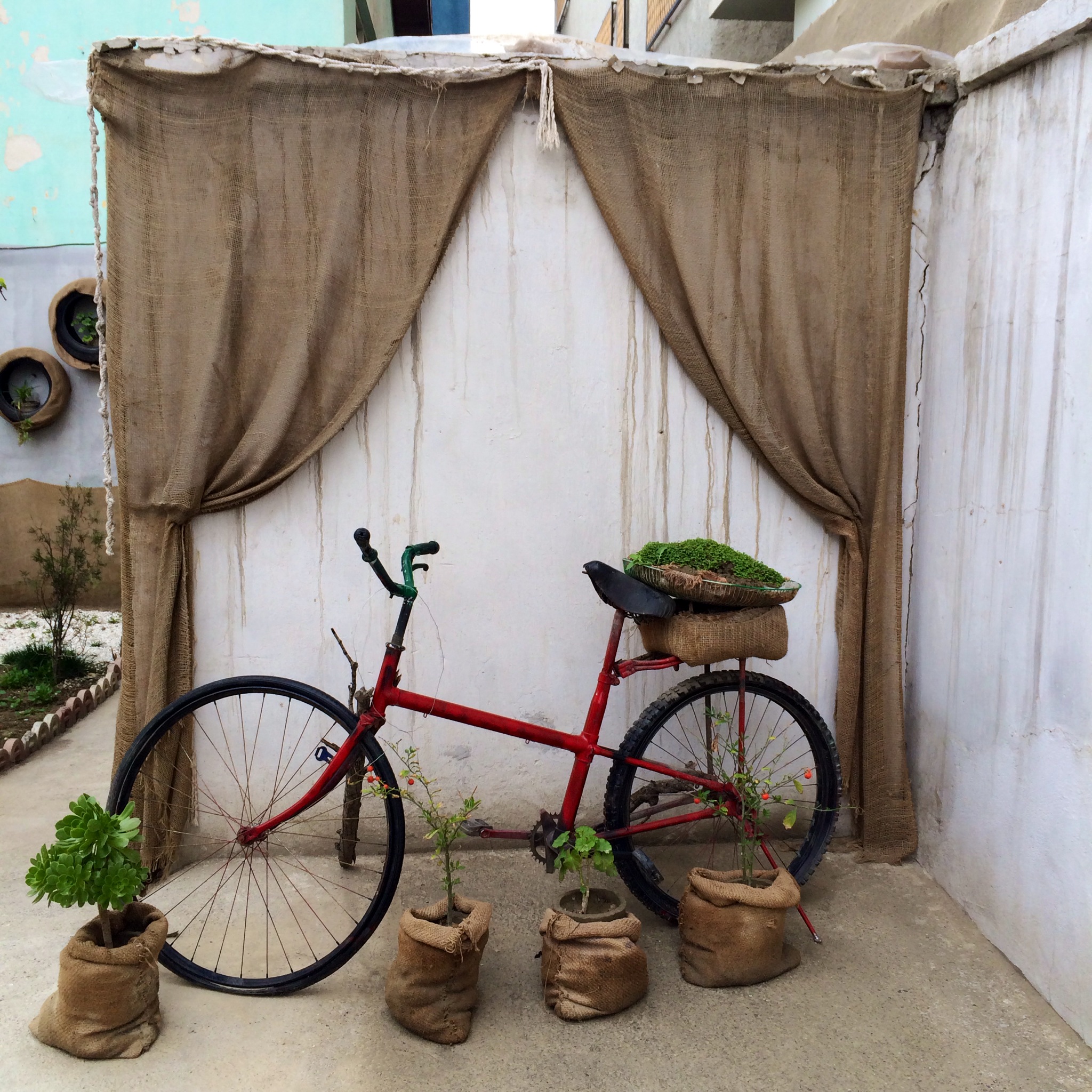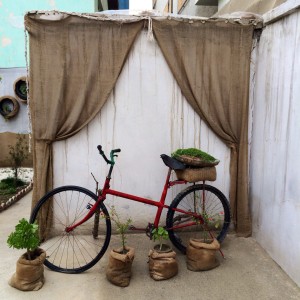By Lynne O’Donnell
Any doubts about the visceral hatred that women in Afghanistan live with every day surely evaporated after the fatal mob beating of a woman outside Kabul’s most famous mosque, in broad daylight, as hundreds of people watched and recorded it on their smart phones.
The woman, Farkhunda, was punched, kicked, stoned, beaten with planks of wood, pushed by police onto a roof and dropped from it, thrown in the street and run over by a car, and had a lump of concrete dropped on her. Her body was dragged along the road outside the mosque and tossed onto the bank of the Kabul River. A huge crowd of her fellow Muslims watched as her body was set on fire.
The horror of the attack played constantly on social media: photos show Farkhunda’s bewildered face framed by wild black hair and red with blood as though painted. Pictures of her killers (mostly men, some women) were posted apparently to help investigators track them down. People talk about how sickened they are by the event, the perpetrators, the collusive police. By their country and its culture, unquestioning reverence for religion, history of violence, poor governance… on it goes.
And, oh yes, there’s the fact that Farkhunda was a woman. Afghan women have less value in their own homes than the carpets on which they sit or the dogs that bark outside their doors. What happened to Farkhunda was merely the everyday taken to the extreme.
Her brutal death completed an eye-opening couple of weeks for me. I’ve written about Afghan women and the troubled politics of their lives for years, won an award for it, believed I was part of the solution. Then I met Kubra Khademi.Kubra is an Afghan artist with performance at the heart of her work. In February, she walked through a conservative — some would say dangerous — area of Kabul wearing a suit of hyper-feminized steel armor. As with much performance art, the genesis of her idea was long and the timing spontaneous. It took place a few days before International Women’s Day, but for Kubra that wasn’t the point.
She put on her armor and walked through a neighborhood where in 2008, when she returned to Kabul from her refugee upbringing in Pakistan to sit a university entrance exam, she was molested. When she protested, a crowd jeered her. What was wrong with her? Didn’t she like it? Who did she think she was to protest? Women as well as men.
Seven years later, she made her statement against the persistent physical and verbal abuse endured by women in Afghanistan.
This is what Kubra taught me: Afghan women are not permitted to have their own identities, they are not considered human. They have no right to personality, pleasure, thought, knowledge. They exist for the use and convenience of men. In growing up, they are assets. In marriage, they are chattels, drudges, child-bearers. In sex, they are receptacles. They play no role in their own lives. They are nothing. No, they are less than nothing, as the experiences of Kubra and Farkhunda show.
We in the West abhorred the Taliban’s treatment of women — forced into burqas, beaten in the streets, banned from school, work, leaving their homes. So when Hillary Clinton and Laura Bush backed the invasion of Afghanistan after the attacks on the United States on September 11, 2001 as a way to bring freedoms to Afghan women, there was hope their lives might improve.
In the years since, billions of dollars have gone into programs aimed at improving the lives of Afghan women. Statistics show that some things have improved — the number who die in child birth, for instance, has fallen. But no one can tell me if that is because fewer are being married off as children, forced into sex (i.e. raped) by older husbands, impregnated before their bodies are ready, or because, as the statistics also show, they have access to better health care. Millions of girls now go to school. But they go for a fraction of the time that boys of the same age, and few make it to tertiary education. Many who do get degrees are married off in arranged couplings, do not work and so their education is wasted.
I recently met a woman who runs one of the hundreds of organizations, funded by American taxpayers, to improve the lot of the Afghan woman. I asked her about street harassment. She couldn’t answer me, she said, as she’d never experienced it. Women should think about where they are going and what they are wearing if they don’t want to be verbally and physically abused outside their homes, she said. My stomach still tightens at the memory of her words. I doubt she has ever walked on a Kabul street, before and after her getting her education in the U.S. paid for by American taxpayers.
Kubra Khademi was abused and threatened after her performance on February 26. She had to leave her home and move in with a friend. That friend, another Afghan artist, went abroad so she came to stay with me. Frightened for her life, she was a virtual prisoner in my apartment for almost two weeks, during which time her whereabouts were betrayed by a former colleague of mine — an Afghan man with two wives, a photographer with an international news agency who takes pictures of women faceless and silent beneath the hideous burqas. He compromised Kubra’s security, and mine, by trading information on her whereabouts as proof of his hatred for women.
News of the attack on Farkhunda only exacerbated the danger to Kubra. The wave of loathing intensified like a tsunami, with online postings threatening that she was next as this is what uppity women deserve. Friends of mine, Afghan men, who did not know she was my guest declared that Kubra’s performance was solely aimed at getting a visa to leave the country; how dare she. In a self-fulfilling circle of hate, Kubra is now safely away from those who would kill her for no other reason than that she is a woman. Worse, a woman with a mind of her own.
The hatred doesn’t stop at the doors of Afghan women. Foreign women living and working in Afghanistan are subject to the same implicit violence as their Afghan sisters. It happened to me before when I ran a newsroom in Kabul, and it’s happening again. From being hissed at by strangers: “Vagina vagina vagina,” through the open window of a car, to verbal abuse from male colleagues, it seems my choices are to take it or leave it. I left once, with no institutional support and to the relief of my supervisors — it was easier that way.
The hatred of and for women by Afghanistan’s men is profound. It is embedded in the DNA of the culture. It is defended, justified, accepted. For the first time in 15 years of covering Afghanistan, through knowing Kubra and reporting on Farkhunda, I finally understand the fear that haunts their every moment. Through having experienced overt abuse, the threat of violence, the lack of respect simply because of my femininity, from society in general and from people I work with every day, I too now live with that fear.
Until we in the West understand the nothingness of Afghan women, we will not be able to help them. The approach to women’s issues in Afghanistan must be recalibrated to incorporate an understanding of their place at the very bottom of their society. They are not revered or respected, as some Afghan men would protest. They are reviled. To approach the problems of Afghan women from a Western perspective, assuming they know themselves as we know ourselves, is to fundamentally mistake them and their society as being like ours. It is not. It is utterly unreconstructed, and only with a total rethink that assesses the subjects of our largesse with honesty, as non-persons within their own society, can we hope to help Afghan women one day, a few generations into the future, take an equal place in their homes, villages, schools and country.
Farkhunda’s murder forced some Afghans to look aghast at themselves and their society. Protesters called for women’s rights and rule of law. Perhaps that might make the sort of difference that dripping water makes on a rock over millennia.
But we cannot escape the fact that 15 years and hundreds of billions of dollars after the U.S.-led invasion to rout the Taliban, a mob of Afghans killed a woman in the street because she was a woman. Many Afghans do not believe the mob did anything wrong. Kubra Khademi, a promising young woman artist, fled her country for her life. My foreign girlfriends and I try to laugh off the abuse we endure as an aberration. But I double-lock all my doors every night, just in case. Like Farkhunda, a pious woman who could recite the Koran by heart and never left home without a hijab, one just never knows…


